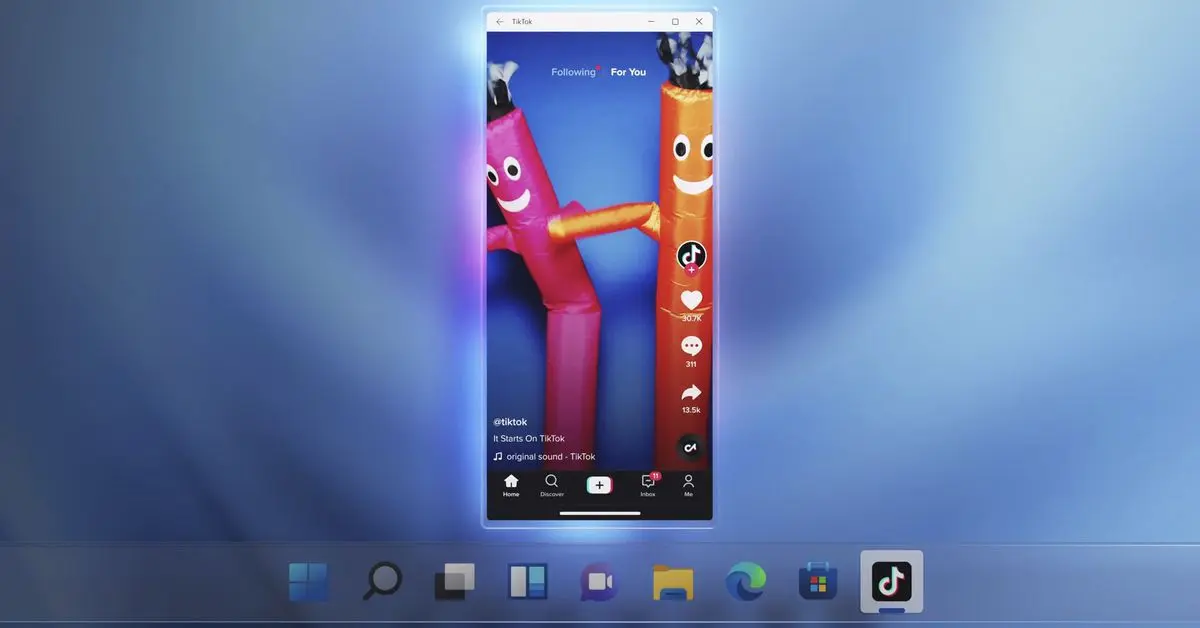- cross-posted to:
- windows@reddthat.com
- cross-posted to:
- windows@reddthat.com
So why kill it off? Security vector? No one using it? No way to monetize it? Support nightmare? Natella got bored with it? All of the above?
I’m leaning more on nobody using it. Didn’t help that they partnered with Amazon for it.
And it’s also not publicly available for everyone.
Could be because, iirc, Amazon is starting to move away from Android.
But third party app stores are so popular!
If that’s a dig at the recent Apple vs. EU, you’ve missed the point completely.
I never even knew this was a thing until now.
Doesn’t help either, that most Android apps are designed for touch screens and most windows machines don’t have one.
Also, when I tried it it was somewhat slow.
And by default, it’s only available on 11. What percentage if the user base has switched.
You can run WSA on Win10, there’s a github for it.
Lol, I didn’t even know that this feature exists.
Waydroid looking good
deleted by creator
deleted by creator
If only I could get hardware acceleration working
That was the single feature that made Win11 even remotely interesting to me. One someone that upgraded right away so I asked about it. Performance was not great (at least for games right away) and the whole locked into Amazon was a no for me. I kept hoping we’d get a vanilla Android at some point. Glad I didn’t get Win11 now.
I was still waiting for them to enable it by default…
Should just end Windows 11 instead.
Introducing windows 12 Its DE has been reformed to a always on camera and is Only microsoft Co-pilot. To improve user experince
They might as well; it’s not great and it’s not easy to use.
You have to log into your phone every single time. The only reason I would want to use Android apps on a laptop is bc the phone is upstairs and I’m downstairs on the laptop.
The only workaround for this is to completely wonk around with the coding on the backend. Also, outside of a handful of games, the bulk of apps are trash and have better Windows non-store alternatives.
Not sure if they were trying to harmonize Android with Windows in the way that Apple products are made, but the whole thing has been executed as a huge mess.
Pretty sure you’re thinking about a completely different feature that’s tied to the Your Phone app. This is about running Android apps natively on Windows.
I know exactly what it is. I was able to “sort of” run a couple Android apps, but it never took advantage of the fact that my laptop has a touchscreen, even when in “tablet mode” and the second time I attempted to use it, I needed to verify on the Android phone again. I’ve had better success with the likes of Bluestacks or Memu.
Like I said, though, the vast majority of apps are useless anyway and a Windows-based alternative usually exists that performs better.
What do you mean verify on the Android phone? I had 0 instances of that when I was using it.
What do you mean “log into your phone every single time”? (Edit: I didn’t mean that to sound like it does, just I don’t know what logging into your phone has to do with WSA. Is there a connection somehow?)
I use WSA, and it works like any subsystem - I think this is a key point - it’s not an Android VM, it’s a subsystem, like the Linux one, and Posix before that. It means apps on those platforms appear to run natively.
I’ve installed a launcher to WSA, and it makes for a more-Android like experience (makes managing some things a little easier).
The Android apps I use on WSA behave just like on the phone - it’s useful for apps that don’t have a sync/web service, or apps where the Windows app or website sucks/doesn’t exist.
So audible is going to have no windows client then I guess
You can stream it from their website
Nobody using W11 I guess.

I have a handful of apps that I use exclusively through WSA. There are some apps that just work better in an android environment, and increasingly there are apps that require android or ios to function. For example, you can even use a landline and WSA to set up a WhatsApp account and use it from your PC. Or their apps that I want to put in a sandbox to use but not on my phone.
I even have lemmy apps that I use on the computer.
I wonder what this means for linux environment support in windows 11? They were introduced around the same time with the similar goal of expanding the functionality of Windows.
I’ve been using Windows 11 at work for a couple years now, and completely forgot that this was supposed to be a feature.
So they are not pulling the feature from Windows right? We will still be able to side load?
If you currently use Android apps from the Amazon Appstore, then you’ll continue to have access to these past the support cutoff date, but you won’t be able to download any new ones once Microsoft makes its Android subsystem end of life next year. On March 6th (tomorrow), Windows 11 users will no longer be able to search for Amazon Appstore or associated Android apps from the Microsoft Store.
I have not looked for stats but I’d love to see what the actual usage of the Microsoft Store is. I know I have never found a use for it and went as far as disabling the MS Store via GPO because I got tired of seeing it and for learning experience.
I have never found a reason, for myself, where I would need to use the MS Store… ever.
Meh, there are a few decent apps on there I use where the distribution is easier or solely through the MS Store. EarTrumpet for better audio management from the taskbar, PaintDotNet, Custom Context Menu for Win11 to add context menu entries. Maybe a few others. It’s not something I open often but it’s not entirely without use. It would probably be better if it wasn’t full of garbage apps/books/etc
not sure about the android stuff but MS store has good functionality in certain instances. For example, if you have a Bluetooth xbox controller that’s acting up you can use the Microsoft Xbox controller app to sort it out really easily/intuitively.
Also works great for getting subsystem for Linux OS installs without a lot of fuss provided your machine is capable.
For example, if you have a Bluetooth xbox controller that’s acting up you can use the Microsoft Xbox controller app to sort it out really easily/intuitively.
Just did that this week to get a new controller set up with my Steamdeck, works great.
Proprietary Microsoft apps dont really count towards the stores usefulness, they are obviously going to try and shoehorn you into their store their stuff.
Most other apps on Windows are usually distributed manually through executables or installers.
I use it for a couple utilities since they do auto-update. I also used to install Firefox and Discord from there since it’s faster than going to the website and downloading the installer manually but now with winget, I found that more convenient.
It seems important for as I’ve seen it being used in updating some system components so disabling it outright might not be a good idea.
Why not use winget or chocolatey instead? They allow for auto updates and have much wider library. Winget can even pull from msstore if necessary. There’s even a convenient WingetUI that consolidates them and others (winget, choco, scoop, npm, .net, pip, etc.) to a single app manager.
I already mentioned that I am. My only issue with winget is that it doesn’t update automatically, you need to do it manually and the list of updates includes a lot of apps that you didn’t install through winget sometimes so it becomes a pain to exclude some apps. Winget UI seems interesting but I personally find it quite ugly.
I have rarely used it.
I used it for some Microsoft product that you had to buy to be able to view the thumbnails of iPhone pictures natively in Windows Explorer.
I also used it for setting up WSL with Ubuntu or some other Linux Distro.
You needed it for WSL last I used WSL, which was admittedly 5 years ago. It was a weird thing, having to ask our sysadmins to get us access, as Docker needed it at the time. Its front page was mostly Candy Crush calibre stuff even then.
That doesn’t answer the question. Sure we will be able to use them past the cutoff date but do they have plans to remove the subsystem in the future through an update?
My prediction is “probably yes”, given the other nonsense they’ve done.
Though I added it to Win10 via a package from github. Win10 did require to be a certain patch level. I would assume the underlying architecture that’s required won’t go away (Android is an API on Linux after all, and we have WSL too), so we should still be able to use something like this.














